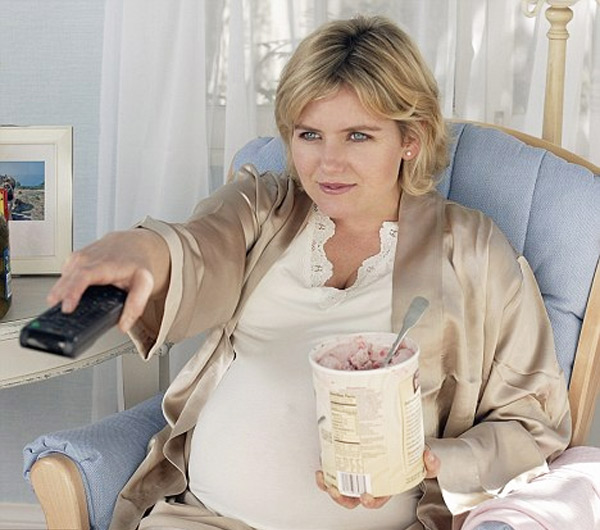
Turning the TV off during mealtimes to help prevent childhood obesity may need to start even before a child is born, according to a study to be presented Tuesday, May 6, at the Pediatric Academic Societies (PAS) annual meeting in Vancouver, British Columbia, Canada.
Researchers found that pregnant women who watched television while eating were more likely to sit in front of the TV while feeding their infant. TV watching during meals is discouraged because it is associated with poorer quality diet, and mothers pay less attention to whether their children are full.
“Reinforcing healthy media habits during pregnancy may help reduce infants’ mealtime media exposure and impact long-term media habits in children,” said lead author Mary Jo Messito, MD, FAAP. “Reduction of mealtime TV viewing during pregnancy could be an important component in early childhood obesity prevention programs.”
Dr. Messito and her colleagues analyzed data from the Starting Early project, an early childhood obesity prevention intervention for low-income Hispanic families at Bellevue Hospital Center/NYU School of Medicine, New York. Women were enrolled in the study during pregnancy, and mother-infant pairs were followed until the child was 3 years old. Women received individual nutritional counseling during pregnancy and after the baby was born, participated in parenting and support groups led by a nutritionist, and were given educational handouts and a video.
During their third trimester of pregnancy, 189 women were asked how often they watched TV during mealtimes. When their infants were 3 months old, mothers were asked how often their baby watched TV while being fed.
Results showed that 71 percent of pregnant women reported at least some mealtime TV watching, and 33 percent of the mothers reported that their 3-month-olds were exposed to the TV during feeding.
Women who watched TV during meals while pregnant were five times more likely to expose their infants to TV during feeding than women who did not watch TV while eating during pregnancy. Mothers who were younger than age 25 and those who did not exclusively breastfeed also were more likely to expose their infant to TV while feeding them.
The total amount of time women spent per day watching TV while pregnant was not associated with their infants’ exposure to television while being fed.
“Few studies have identified how mealtime TV viewing habits begin in infancy, and what maternal characteristics during pregnancy and early infancy are associated with them,” said Dr. Messito, project director of the Starting Early study. “Identifying specific maternal behaviors and characteristics associated with child TV viewing during meals will help early childhood obesity prevention efforts seeking to promote responsive feeding and limit TV exposure during infancy.”
The study done by American Academy of Pediatrics.